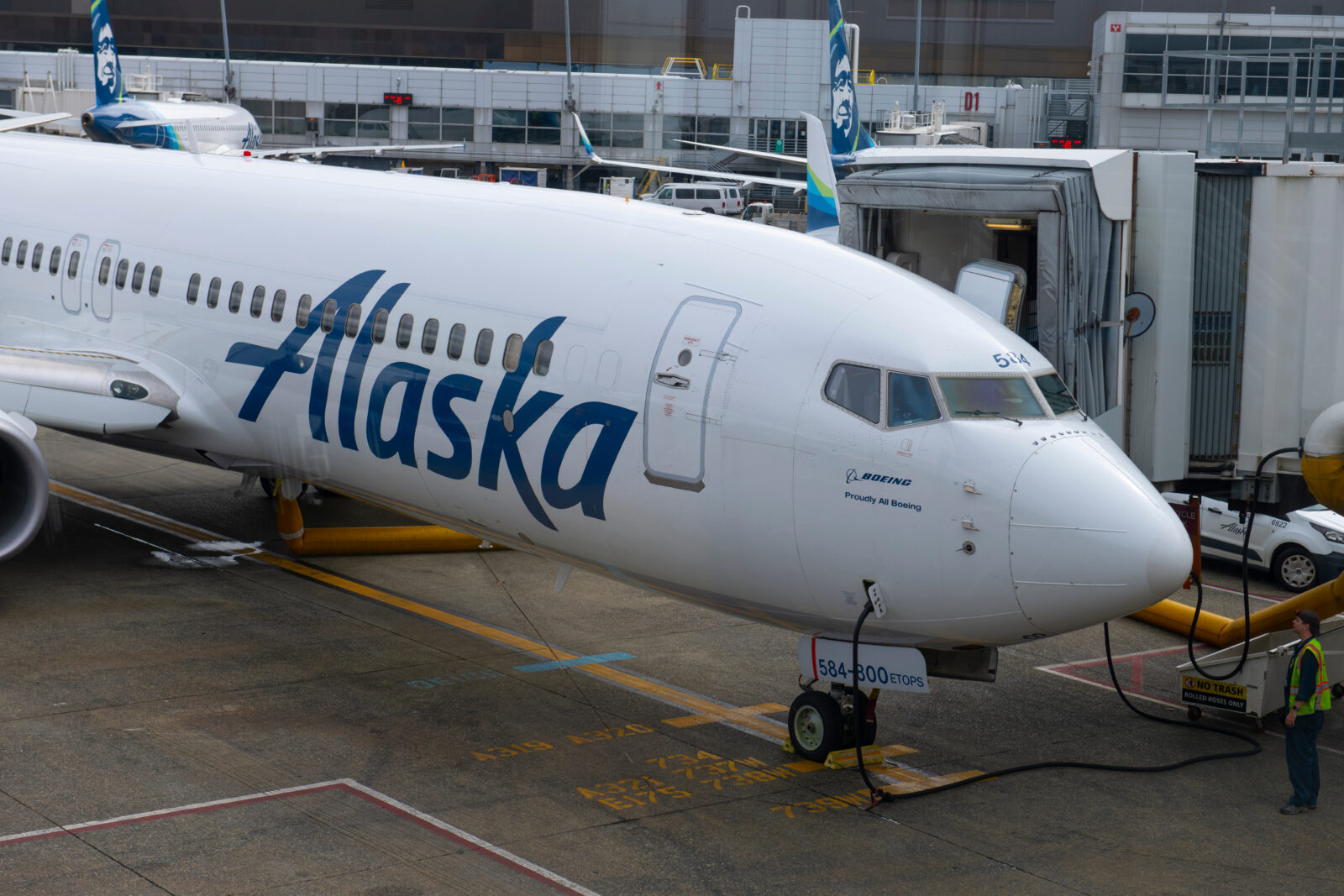
Nearly one in ten flight attendants at Alaska Airlines have experienced some form of homelessness in the past year, according to a new poll carried out by the Association of Flight Attendants (AFA-CWA), which represents crew members at the Seattle-based carrier.
According to the poll of thousands of flight attendants, 9% of respondents said they had been forced to live out of their car, in a homeless shelter, or sofa surf with friends and family because their wages were so low.
Another 10% of flight attendants still live with their parents because they can’t afford to pay the rent on their own property, while 43% said they still have to live in apartments with roommates.
The poll comes as the union continues to try to lock in a new contract for Alaska’s flight attendant workgroup. In February, 99.48% of crew members voted to authorize a strike unless progress was made in wage talks with the airline.
At the time, Alaska Airlines partially dismissed the strike vote, describing it as a “common step” in the negotiation process.
Negotiations are still ongoing, and while Alaska Airlines says good progress is being made, the union is becoming increasingly irked with the slow progress of talks.
“While Alaska Airlines executives reward themselves with millions in bonuses, frontline Flight Attendants literally have to choose between buying groceries and paying their bills,” slammed AFA Alaska President Jeffrey Peterson after the results of the poll were published earlier this week.
“By dragging out contract negotiations, management is harming Flight Attendants,” Peterson continued.
The survey also found that 59% of flight attendants had just $500 per month to spend after all their bills were accounted for, while 71% said they didn’t have enough savings to cover their expenses for three months should they be unable to work.
Over a third of flight attendants said they had relied on food stamps or been forced to visit a food bank in the past year, while 29% of crew members said they commuted more than 100 miles to their base so that they could live in a cheaper city.
AFA says it will refuse to back Alaska’s proposed takeover of Hawaiian Airlines until a new ‘industry-leading’ contract is negotiated.
In 1993, Alaska’s inflight crewmembers became one of the last flight attendant workgroups allowed to take part in strike action. During the walkout, Alaska Airlines attempted to break the strike by retraining office workers as flight attendants in an attempt to break the strike.
To get around Alaska’s strike-busting strategy, the union changed quickly changed its tactics and called off an all-out strike. Instead, AFA called out flight attendants from random flights with little or no notice. Alaska Airlines didn’t have enough time to send its retrained office workers to operate the flight, leading to delays and cancellations.
Alaska Airlines attempted to get a court injunction against this controversial tactic, but a federal judge backed the union, and the AFA’s random strike method is even trademarked as CHAOS, which stands for ‘Create Havoc Around Our System’.
Related
Mateusz Maszczynski honed his skills as an international flight attendant at the most prominent airline in the Middle East and has been flying ever since... most recently for a well known European airline. Matt is passionate about the aviation industry and has become an expert in passenger experience and human-centric stories. Always keeping an ear close to the ground, Matt's industry insights, analysis and news coverage is frequently relied upon by some of the biggest names in journalism.








In my experience in dealing with flight attendants in my job capacity, I’d say 1 in 10 would be a likely number since the new hires usually do not get based near their previous home. As for half of them having multiple roommates would also apply. Flight attendants do that intentionally to reduce rent cost and count on the fact that at least two or more of their roommates should be flying at the same time. And not living in the city, state or even the country of their base is extremely common. The crew member flies into their base city before their flight. These conditions do not change with pay increases. I’d been around many of these strikes and raises, the flight attendants have made these choices to live these ways. Even the “homelessness”. Many times the flight attendants stay at their domicile (base) while on duty and then fly home on their days off.
Suspect that answered may be given to add weight to their strike claims. But on my recent flight from LA to jfk. The flight attendant did drink service then walked the cabin twice for trash. On the five hour flight I suspect they maybe worked 1.5 hours.
I don;t understand why these people taking entry level jobs don’t already own theirown homes.
No college education required. No work history with progressive advancement.
It’s a mystery.
Well the great thing about America is that they can quit if they like and go to work for Walmart! These number appear to be artificially inflated.